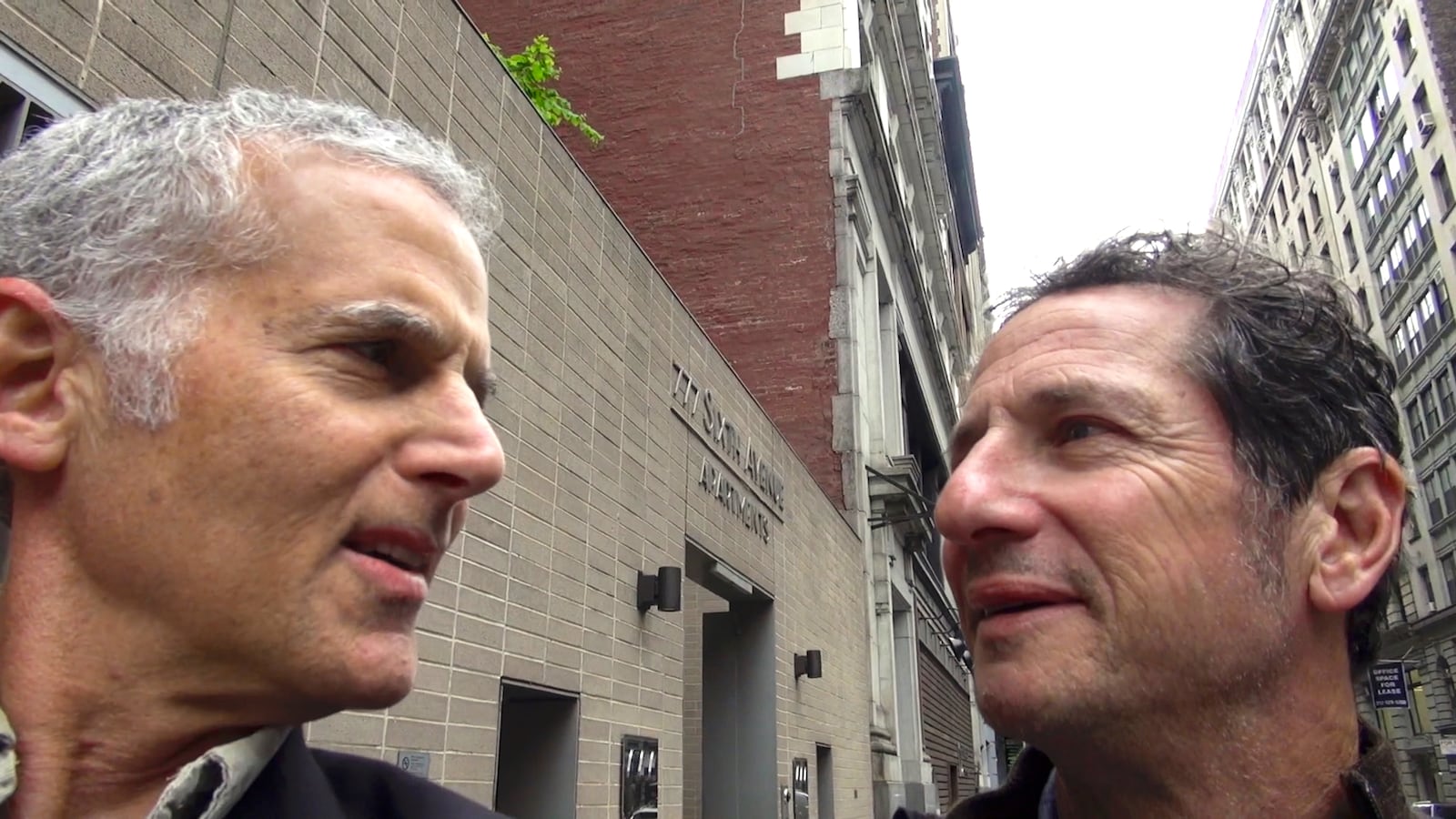Childhood is a time of figuring out who you are, what you like, and how you want to present yourself to the world—and occasionally, that process also results in behavior that, in hindsight, might be embarrassing or reprehensible. Investigating those experiences in order to comprehend what they say about us—both then and now—can be an uncomfortable undertaking. That’s precisely the mission embarked upon by When We Were Bullies, acclaimed filmmaker Jay Rosenblatt’s Oscar-nominated short documentary about a traumatic incident from his past, the memories that it evokes, and the lessons he comes to learn about the target of his bad behavior, his classmate accomplices, and himself.
Premiering March 30 on HBO, When We Were Bullies is a trip back in time for Rosenblatt—specifically, to his 1965-1966 fifth grade school year at PS 194 in Brooklyn, New York. That’s not the sole era the film revisits, however, as Rosenblatt begins his 35-minute gem with present-day footage of him and another man struggling to climb over a fence and into PS 194’s schoolyard, where decades earlier, they had mistreated a fellow student. Before Rosenblatt can get into the nitty-gritty of that fateful day, he details the origins of this self-inquiry, which began in 1992 San Francisco. At work on what would become his 1994 short The Smell of Burning Ants, Rosenblatt was scanning footage from black-and-white 1950s educational films when his eye was caught by a clip of two kids sparring in front of an elementary school—and, particularly, by a brief instance in which a young bystander to this fracas suddenly throws a quick punch at one of the fighters.
The reason this fleeting moment struck Rosenblatt so deeply was that he saw himself in this “collaborator,” due to his own adolescent wrongdoing. To explain that formative event, however, Rosenblatt must first recount an amazing coincidence. In 1994, while teaching a course on filmmaking, he became impressed by the narrator of one student’s project, and sought this individual out. Amazingly, this figure was Richard, a fellow fifth grade classmate of Rosenblatt’s, whose memory remained sharp about their bullying. On an otherwise ordinary Wednesday, their teacher Mrs. Bromberg had held the class late, blaming “Richard” for speaking when he should have been silent. Since Richard had known that he wasn’t responsible, he quickly surmised that Mrs. Bromberg was referring to their classmate Dick (a nickname the boy had received in fourth grade, because he shared a room with three other Richards). Richard told everyone that Dick had earned them their punishment, and when the bell rang, many of the students chased after Dick, surrounding him on the playground and beating him up until he was finally able to flee.
Rosenblatt never forgot that, the following day, Mrs. Bromberg told the class (minus Dick) that they were “animals,” and When We Were Bullies pinpoints how his guilt and shame has lingered over the decades, resurfacing every so often, as it did in 1994 when The Smell of Burnings Ants premiered. Following an SF Weekly article about his career that touched upon his latest (and, in turn, this fifth-grade incident), Rosenblatt heard from Dick, now a successful television producer, who was curious to see The Smell of Burning Ants. Rosenblatt sent him a copy and never heard back. Sixteen years later, spurred by his PS 194 year’s 50th anniversary, Rosenblatt decided to ask every classmate he could track down about their recollections of this bullying affair, and their responses proved at once diverse, sympathetic, and self-recriminatory, laced with a grief and regret that Rosenblatt himself knew well.
When We Were Bullies is a candid confrontation of an old wound that’s never quite healed, and its—and Rosenblatt’s—forthrightness is bracing. Narrated by the director, it’s comprised of not only traditional non-fiction material (interviews, on-location scenes) but clips from 1950s archival movies and animated sequences (by Jeremy Rourke) in which images unfold on the screen like notebook paper, and childhood class portraits are cut out of larger photos and brought to whispering, spinning life. Also featuring Erik Ian Walker’s Schubert-inspired score of strings, guitar and twinkling tones, it’s a subtly transportive aesthetic that captures an intimate sense of the period in question, as well as Rosenblatt’s intense connection to this tale. A later visit to the now 92-year-old Mrs. Bromberg further underscores the personal nature of the filmmaker’s quest, just as Mrs. Bromberg’s inability to remember this case of bullying winds up echoing the vague and/or non-existent memories of some of Rosenblatt’s grown classmates.

At the conclusion of When We Were Bullies, Rosenblatt says that convention dictates he now trot out Dick to articulate both his attitude toward the skirmish, and the effect it’s had on his life—and, perhaps, to forgive everyone for their misdeed, which might simply be chalked up to kids being kids. Instead, however, Rosenblatt states what viewers will no doubt have similarly gleaned: When We Were Bullies isn’t about Dick at all; rather, it’s about Rosenblatt and his compatriots, and the terrible thing they did in their youth, their lingering mortification, and the way in which those feelings have never fully disappeared. As someone who lost his brother in the fourth grade, Rosenblatt empathetically recognizes that his latest is, at heart, about seminal suffering, and the lengths people go to hide their vulnerabilities in order to soldier onward.
Consequently, When We Were Bullies doesn’t end with celebratory absolution but, more touchingly, with an expression of sorrow and understanding for the pain Rosenblatt and others caused, the anguish they all endured (in their own ways), and the aches that never fully go away—for the worse and, maybe if they show us a different, more compassionate way forward, also for the better.







